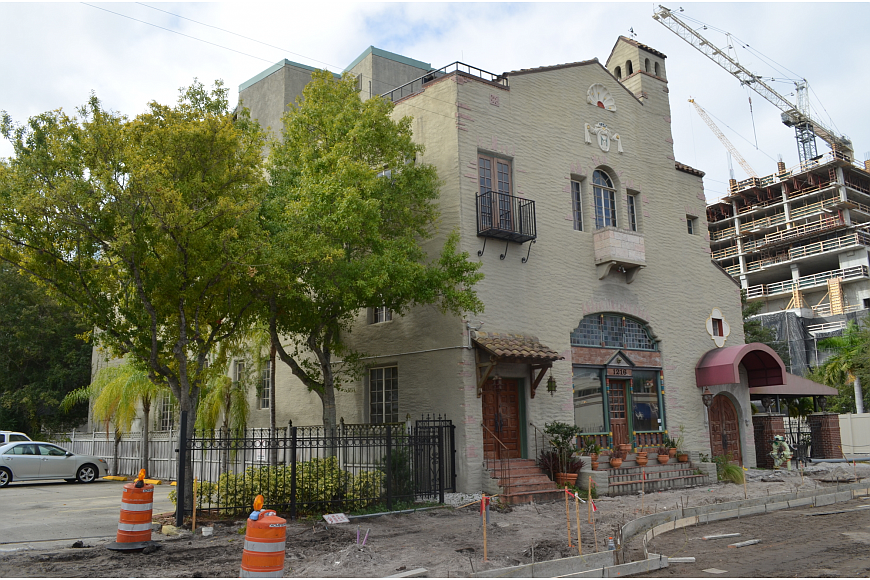- January 14, 2025
-
-
Loading

Loading

Like many people, City Commissioner Jen Ahearn-Koch is occasionally haunted by the memory of the one that got away — in her case, a now-demolished building.
Before joining the commission, Ahearn-Koch was a member of the city’s Planning Board. In 2010, the owners of what would become Square 1 Burgers at 1737 S. Tamiami Trail asked to expand the parking on their property. To do so, they wanted to tear down a home at 2043 Arlington St.
The home was constructed in 1919. Staff noted that the home was structurally sound and qualified for local designation as a historic structure. However, a property owner has to actively seek out that local designation for the city to protect a structure from demolition.
Ahearn-Koch asked staff if there was anything that could be done to preserve the property. There wasn’t, they said.
“There was this beautiful Tudor-style building that was not dilapidated, not termite-ridden, had no issues with it, but it was demolished — like the song says — to make a parking lot,” Ahearn-Koch said.
Ahearn-Koch has heard from residents who bemoan the loss of pieces of Sarasota’s history. There are other stories like hers about the Arlington Street home. That’s why staff is in the process of reviewing the tools available to encourage greater historic preservation throughout the city.
At the Nov. 14 Historic Preservation Board meeting, city planner Cliff Smith outlined the steps the city was considering taking. The first step is updating a historic survey that identifies all structures throughout the city that are at least 50 years old.
Those buildings, regardless of their actual historic significance, are indexed on the Florida Master Site File. The city hasn’t updated its survey since 2010, and even that was just for a portion of the city.
Most of it hasn’t been updated since 2003, which means most buildings built between 1953 and 1967 aren’t indexed.
That midcentury period represents the heyday of the Sarasota School of Architecture, which underscores the need to update the surveys, Smith said. Even though not all buildings identified in the survey qualify for local designation and enhanced preservation, Smith called it an important tool for indexing potentially historic structures in the city.
“If you’re given the task to manage something, the first question you have to be able to answer is, ‘What am I managing?’” Smith said.
Because seeking local historic designation is a voluntary process for a property owner, the city is searching for ways to encourage more residents to get involved. After a property receives historic designation, the owner must seek permission from the city before making changes to the exterior or structure of the building.
Already, historically designated buildings can receive a tax exemption on the assessed value of improvements to the property. Smith is in the early stages of researching the possibility of an additional tax incentive.
“When you ask somebody to designate their house, to preserve and protect it in perpetuity, you want to make it as painless as possible for them,” Smith said. “You want to help them in any way you can.”
As staff and the Historic Preservation Board review their options, Ahearn-Koch hopes they also look at the standards the city uses when determining whether a demolition permit may be issued. She fears that too many properties worth saving aren’t being saved. That sentiment drew concern from Commissioner Hagen Brody at an Oct. 16 meeting.
Brody said he was happy to see the Historic Preservation Board take the initiative to review the city’s standards, but he cautioned against being overly protective.
“It’s a little bit in the eye of the beholder, of what is historic,” Brody said. “It’s important to understand that sometimes, structures can just be old.”
Ahearn-Koch said she understood a need to avoid being overly burdensome on property owners, but she thinks a better balance could be struck. She believes preserving historic structures adds an important and valuable facet to the city, and that officials shouldn’t hesitate to recognize that with stronger policies.
“That value is a sort of texture and fabric that can’t be fabricated — it can’t be invented and made and reconstructed,” Ahearn-Koch said. “That history you have — if it can be preserved, it should be preserved.